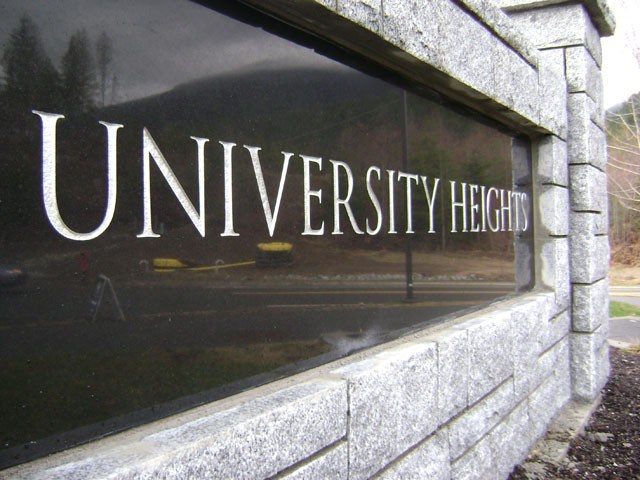There’s a brain boom headed for Squamish, and an Olympic legacy is the synaptic underpinning.
Squamish will play host to a repeater station in a fibre optic line that runs from Vancouver to Whistler, an infrastructural initiative spearheaded by Bell Canada for the 2010 Olympics.
The Squamish Sustainability Corporation (SSC) plans to use that system to cobble together a knowledge industry capable of significant economic dividends. During a mid-week strategy session, the District of Squamish council was privy to a presentation by Brock Dickinson, a partner in Miller, Dickinson, Blais Inc, a consulting firm with expertise in economic development.
“There appears to be a number of opportunities that are very close to fruition,” Dickinson told the chamber. “It surprised us the strength and depth the community has towards this sector.”
A knowledge-based industry has several manifestations, and Dickinson zeroed in on four suitable to Squamish: geo tech; animation, film and television; interactive media; and so-called rec tech.
Geo technology refers to earth and environmental sciences, things like alternative energy development. According to Dickinson, Squamish is already poised to exploit this sub-sector, thanks in part to the community’s lust for the outdoors.
Ditto the animation, film and television sub-sector. The town’s proximity to industry-hub Vancouver is an asset, while tax shelters not available elsewhere increase the appeal. Here, said Dickinson, exists a vast market ready for the reaping.
“We specifically flagged the animation component with China as a market,” he said. “China is home to 370 million children. In a sense, China is not prepared at the moment to supply this need.”
Interactive media includes video game development, as well as web design and online social networking websites.
Rec tech refers to the engineering of sports equipment like snowboards or skis, another sub-sector made attractive by Squamish’s proximity to Whistler.
Dickinson’s research contained alluring financial figures, as well. The average weekly wage earned in B.C.’s knowledge industry tops $1,000, while the province’s service industry sits closer to $700.
While obviously impressed, council wasn’t entirely sold. Concerns were expressed about access to employment opportunities and the number of positions these companies might create.
“There’s no question that knowledge-based industries are not immediately available to everyone,” Dickinson admitted, but added that Quest University and Capilano College offer higher learning opportunities.
And, while individual companies may start with only one or two employees, they swell in size very quickly. Further, and again because of Squamish’s proximity to Vancouver, pre-existing companies may decide to open branches in a more affordable environment, bringing with them years of financial resources.
Proof of that, Dickinson said, can be found in St. Catherines, Ontario. There, a company called Silicon Knights came online after traditional industries began to fade. The company started with just three employees, but grew quickly and is now home to 40 workers.
And, said Dickinson, they did this with almost none of the pre-existing benefits available in Squamish.




